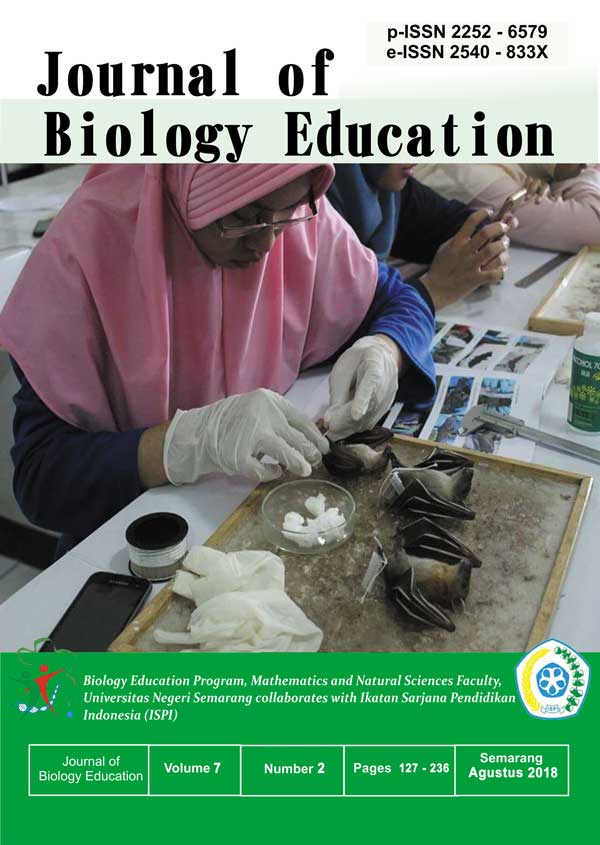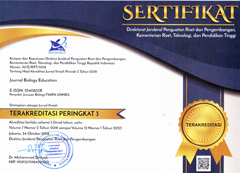Analysis of the Effectiveness of Learning Models against Students’ Innovative Behaviour
Abstract
Practicum become an appropriate method to give provisions in empirical experience especially for college student of Biology Education. Practicum was believed could show university students’ innovative behavior. The concrete form from using practicum method is learning model application that include learning syntax from the beginning to the end. Therefore, a research was did to analyze relation between practicum method towards innovative behaviour and the effectivity of it. Based on the result of regression analysis, all models give significance value p < 0.05 so could be known that every learning model give significance influence toward the formation of university students’ innovative behavior. Based on correlation coefficient analysis could be known that PJBL learning model give contribution value of 86.2% followed by guided inquiry of 85.4%, experiment model of 76.3% and observation model with contribution value of 64.7% toward the formation of university students’ innovative behavior. Based on the results of variance similarity analysis could be known that PJBL model is the most effictive model to form innovative behavior with difference value of 17.80 compared with other learning models. The result of research showing that all of the learning models when used on practicum relating the formation of innovative behaviour. Project based learning model gave contribution most effective towards innovative behaviour of the college students in Biology Education study program.
The copyright of the article once it is accepted for publication shall be assigned to the journal as the publisher. The intended copyright includes the right to publish the article in various forms (including reprints). The journal maintains the publishing rights to the published articles.
This work is licensed under a Creative Commons Attribution 4.0 International License.








